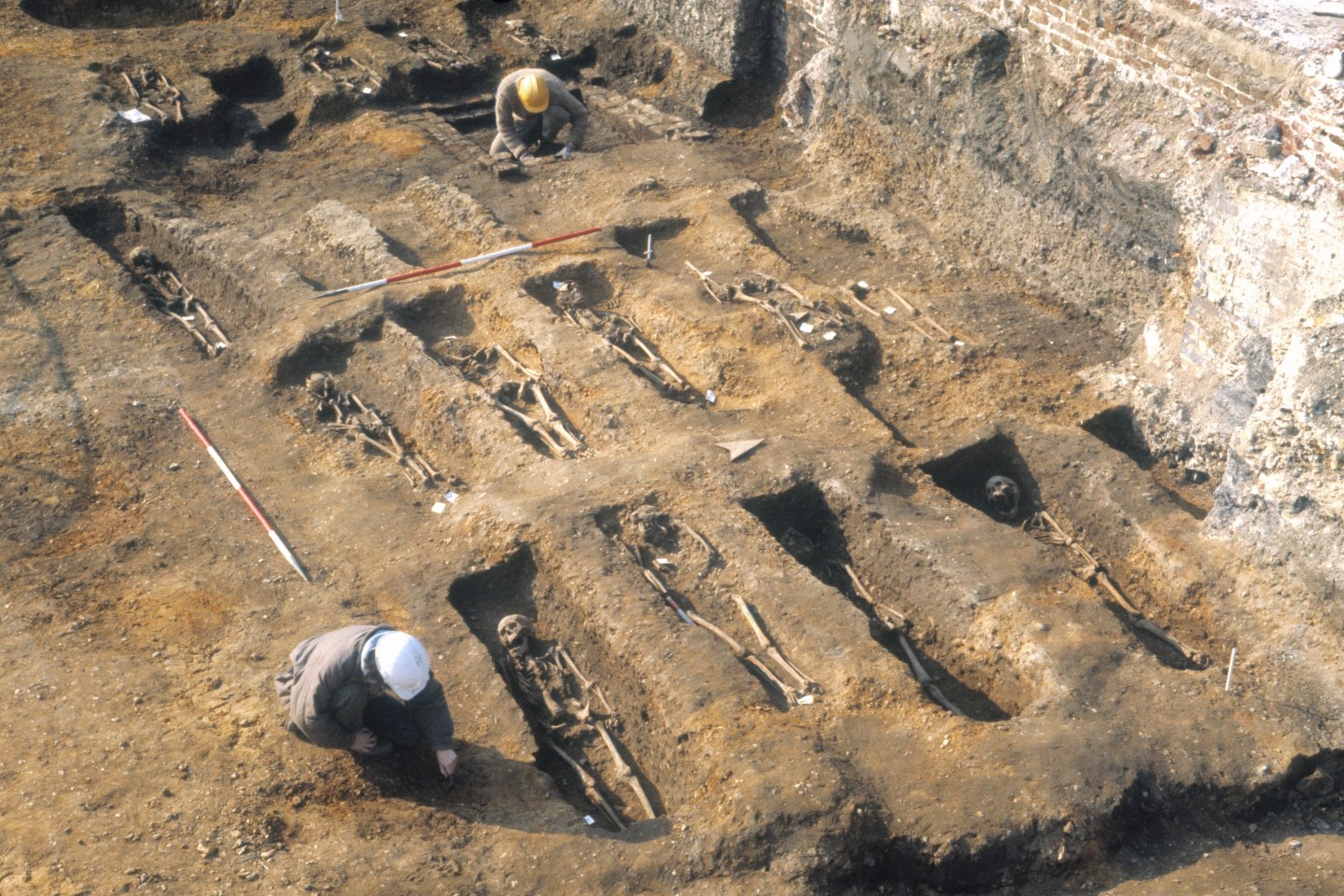Our Medieval ancestors left us with a biological legacy: Genes that may have helped them survive the Black Death make us more susceptible to certain diseases today.
It’s a prime example of the way germs shape us over time, scientists say in a new study published Wednesday in the journal Nature.
“Our genome today is a reflection of our whole evolutionary history” as we adapt to different germs, said Luis Barreiro, a senior author of the research. Some, like those behind the bubonic plague, have had a big impact on our immune systems.
The Black Death in the 14th century was the single deadliest event in recorded history, spreading throughout Europe, the Middle East and northern Africa and wiping out up to 30% to 50% of the population.
Barreiro and his colleagues at the University of Chicago, McMaster University in Ontario and the Pasteur Institute in Paris examined ancient DNA samples from the bones of more than 200 people from London and Denmark who died over about 100 years that stretched before, during, and after the Black Death swept through that region.
They identified four genes that, depending on the variant, either protected against or increased susceptibility to the bacteria that causes bubonic plague, which is most often transmitted by the bite of an infected flea.
They found that what helped people in Medieval times led to problems generations later — raising the frequency of mutations detrimental in modern times. Some of the same genetic variants identified as protective against the plague are associated with certain autoimmune disorders, such as Crohn’s disease, rheumatoid arthritis and lupus. In these sorts of diseases, the immune system that defends the body against disease and infection attacks the body’s own healthy tissues.
“A hyperactive immune system may have been great in the past but in the environment today it might not be as helpful,” said Hendrik Poinar, an anthropology professor at McMaster and another senior author.
Past research has also sought to examine how the Black Death affected the human genome. But Barreiro said he believes theirs is the first demonstration that the Black Death was important to the evolution of the human immune system. One unique aspect of the study, he said, was to focus on a narrow time window around the event.
Monica H. Green, an author and historian of medicine who has studied the Black Death extensively, called the research “tremendously impressive,” bringing together a wide range of experts.
“It’s extremely sophisticated” and addresses important issues, such as how the same version of a gene can protect people from a horrific infection and also put modern people — and generations of their descendants — at risk for other illnesses, said Green, who was not involved in the study.
All of this begs the question: Will the COVID-19 pandemic have a big impact on human evolution? Barreiro said he doesn’t think so because the death rate is so much lower and the majority of people who have died had already had children.
In the future, however, he said more deadly pandemics may well continue to shape us at the most basic level.
“It’s not going to stop. It’s going to keep going for sure.”
___
The Associated Press Health and Science Department receives support from the Howard Hughes Medical Institute’s Department of Science Education. The AP is solely responsible for all content.
Sign up for the Coins2Day Features email list so you don’t miss our biggest features, exclusive interviews, and investigations.












